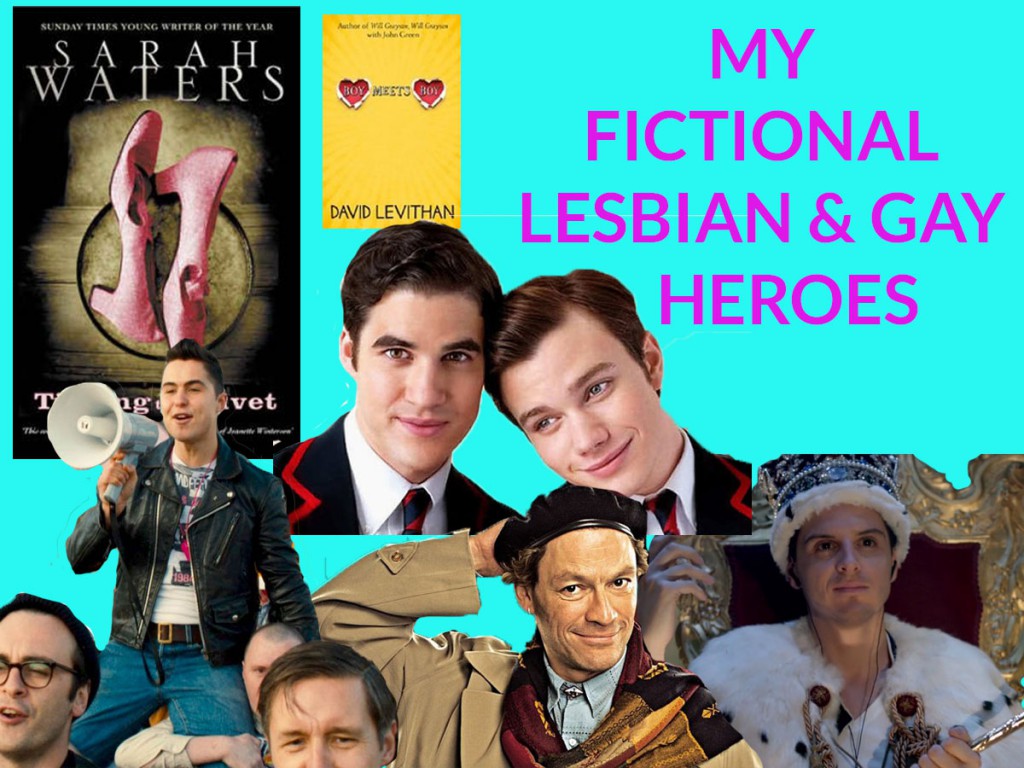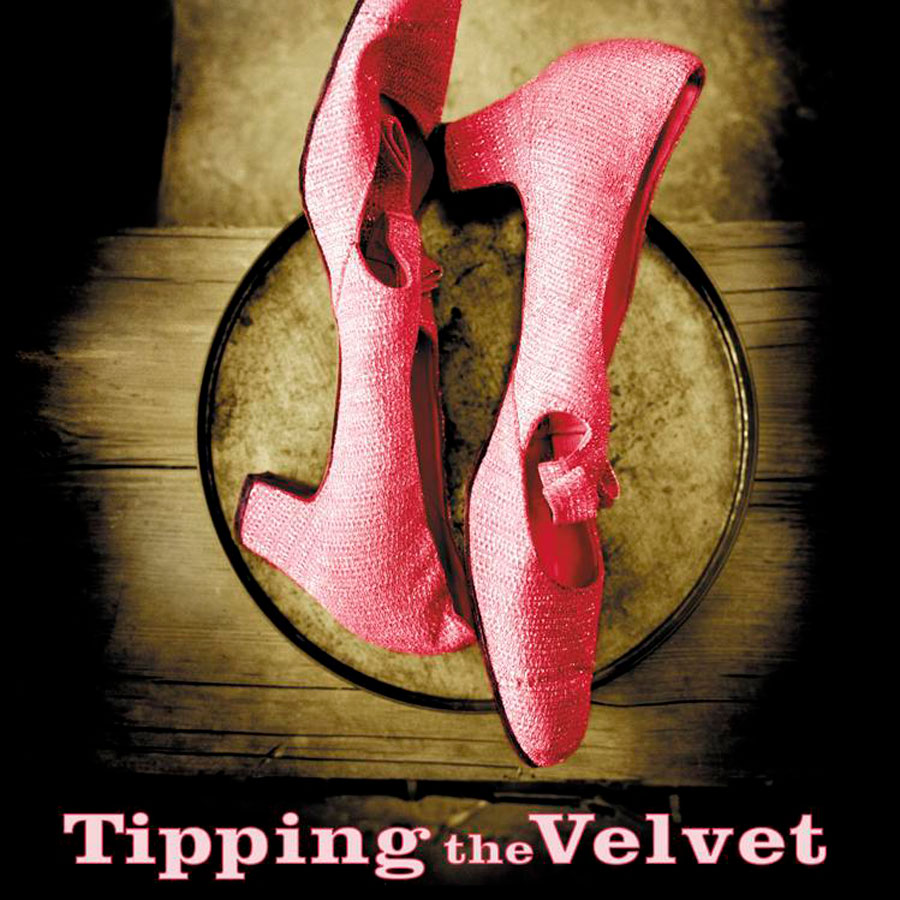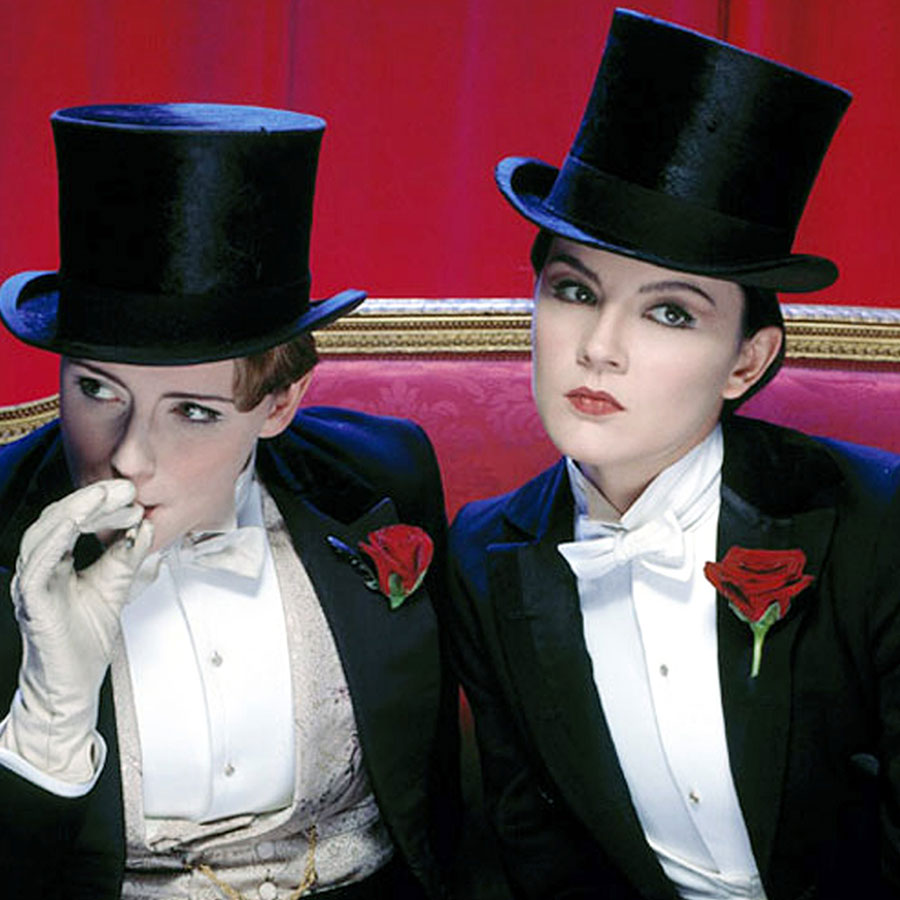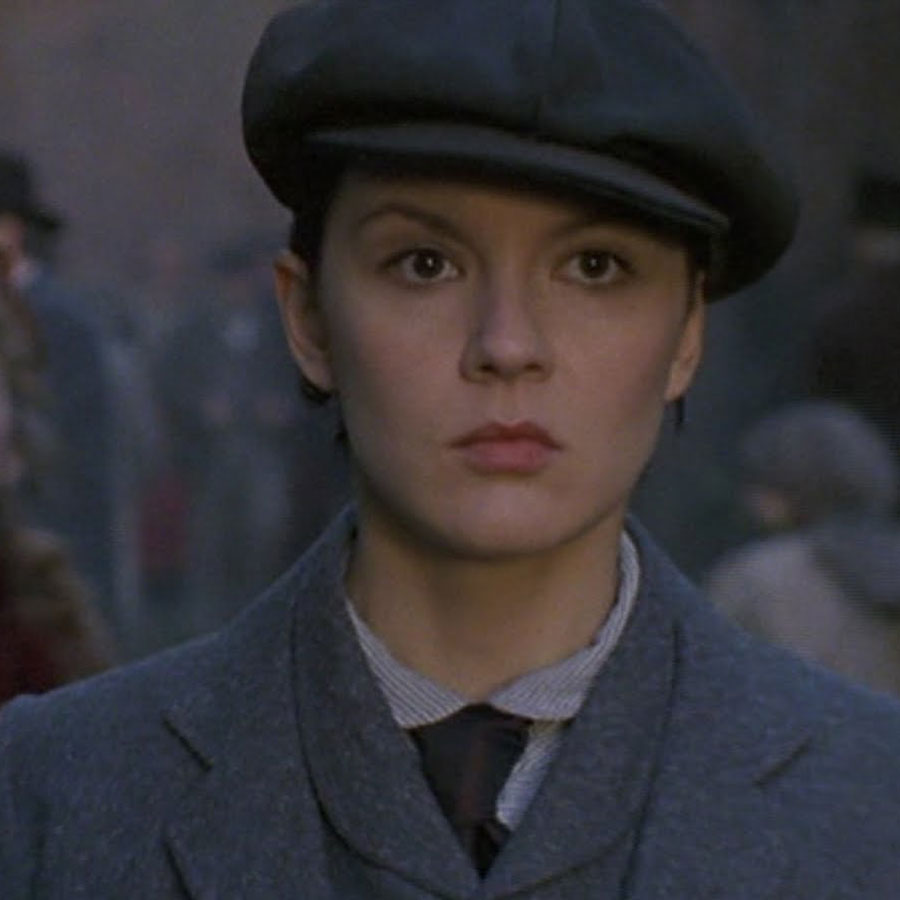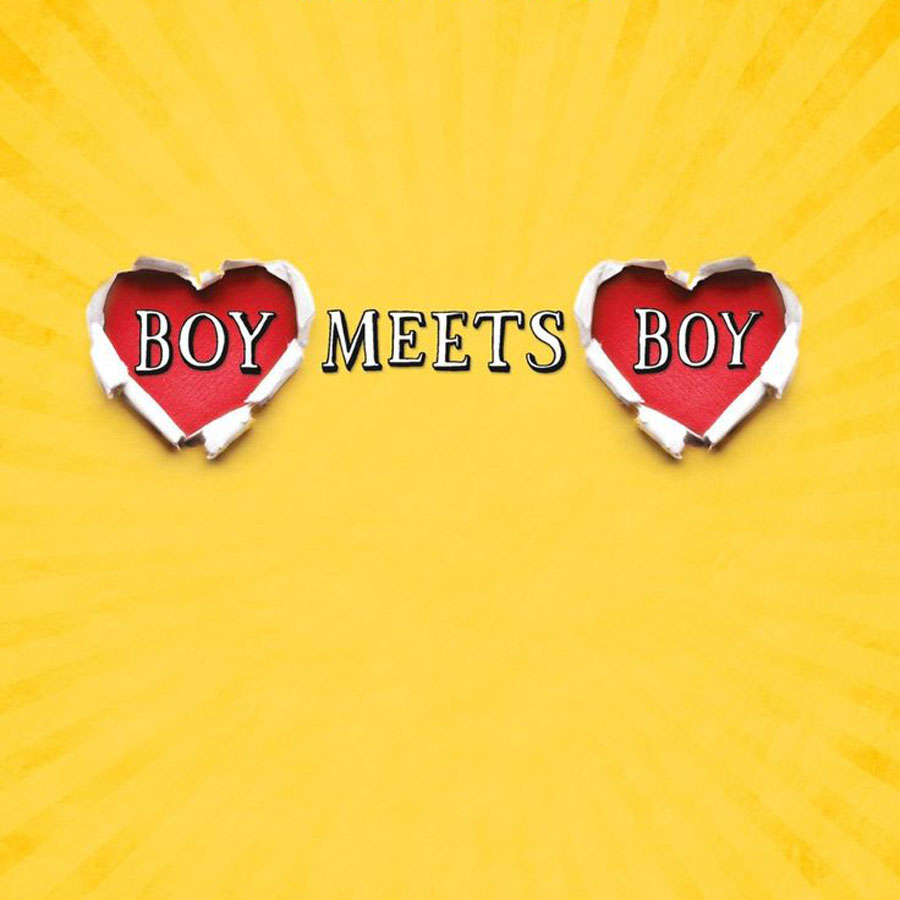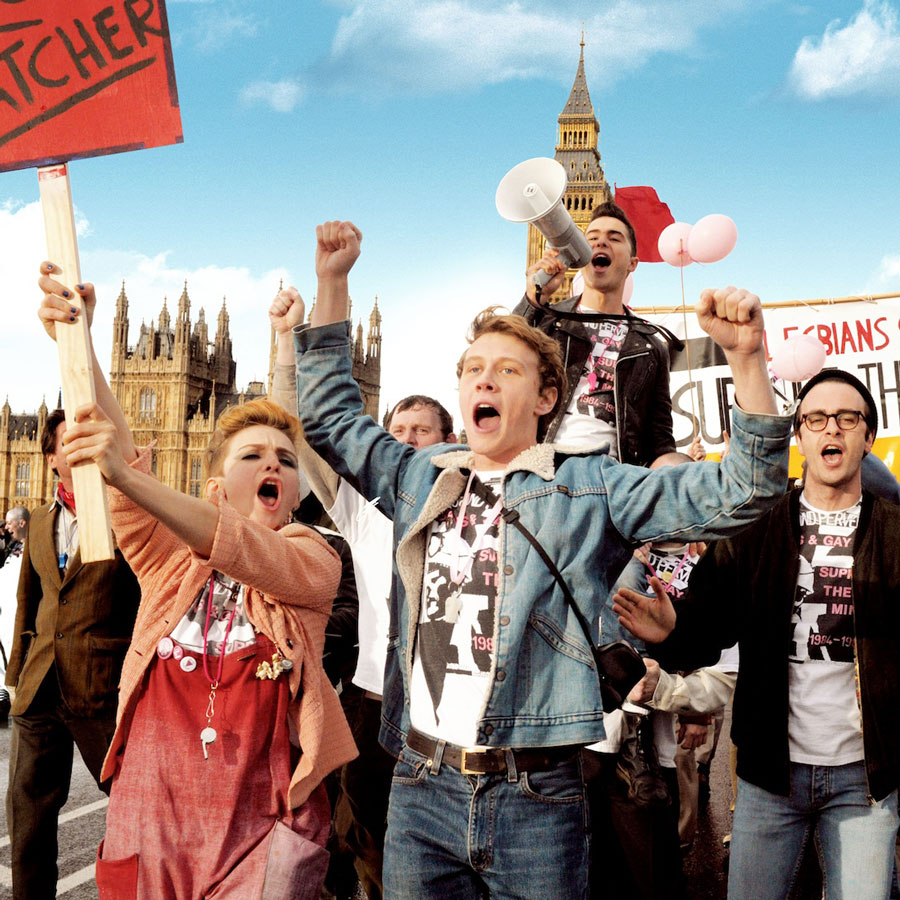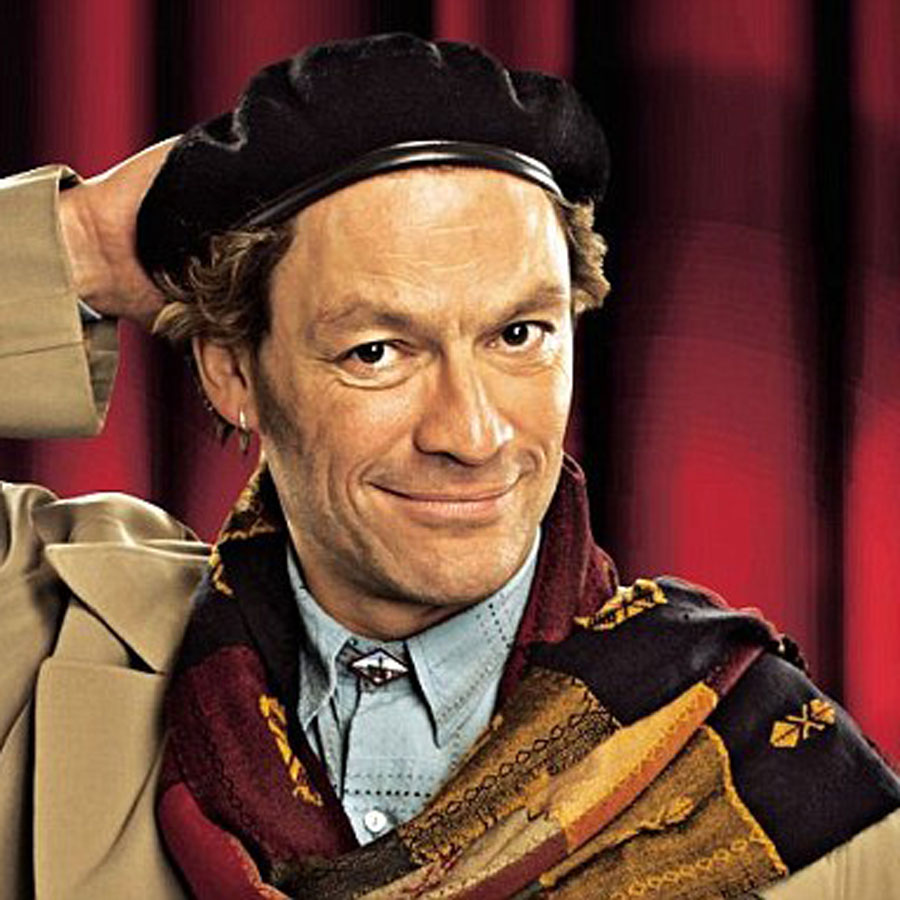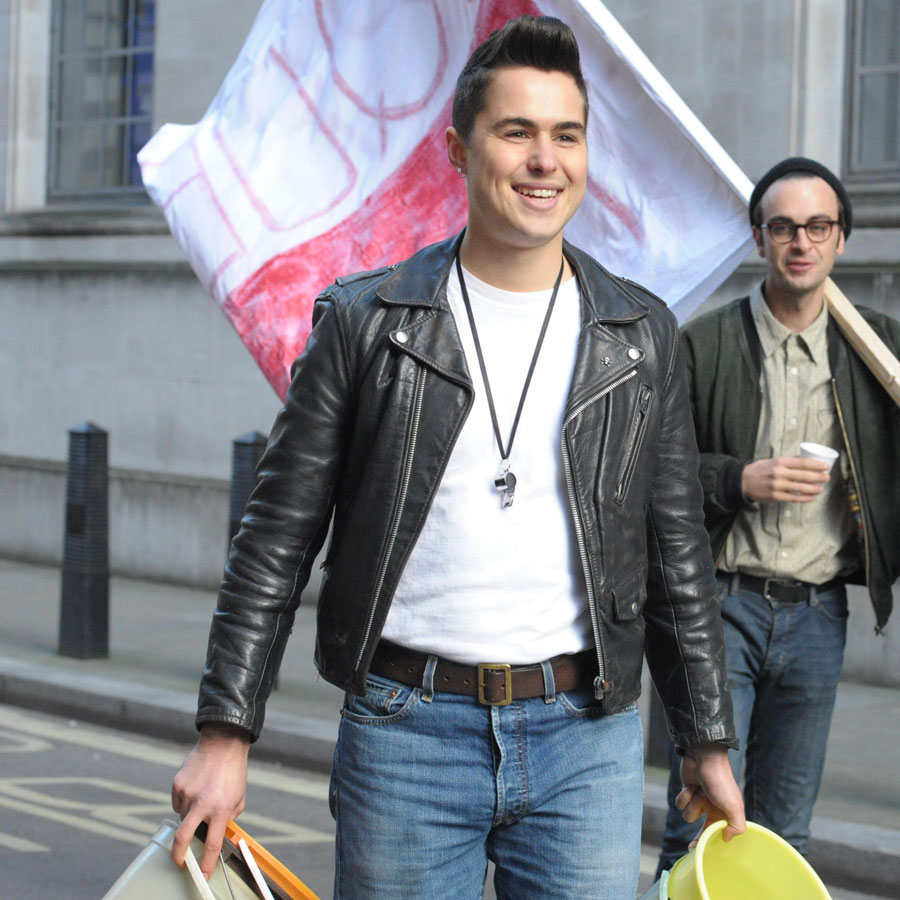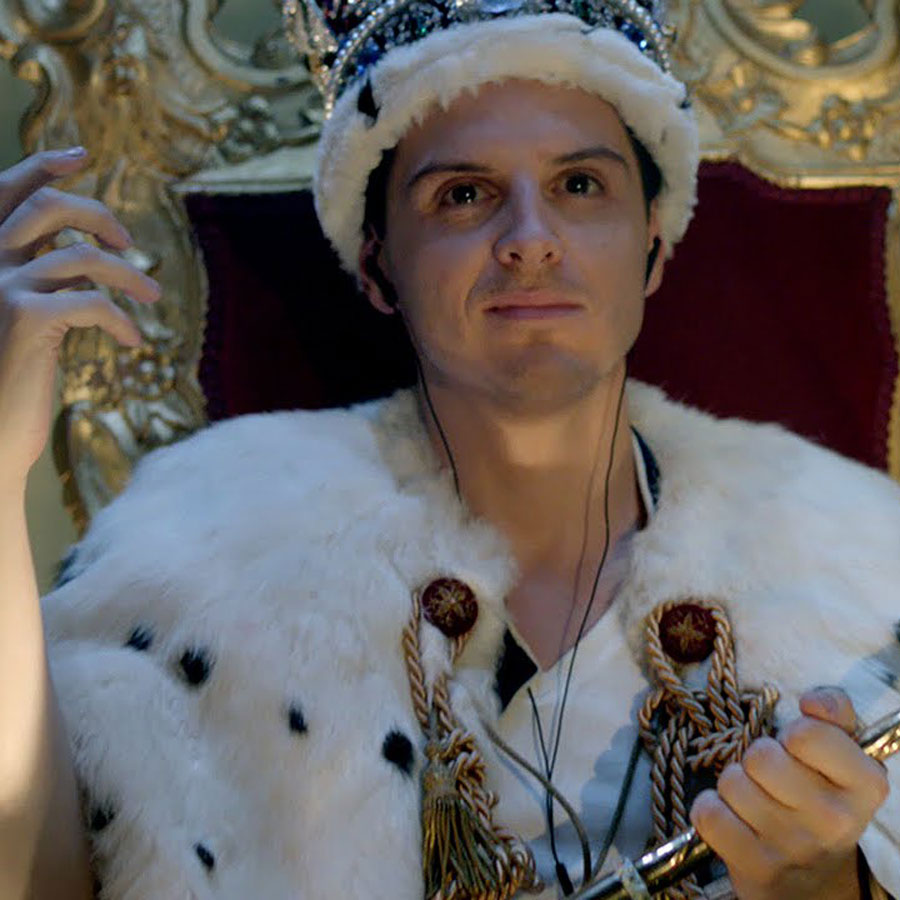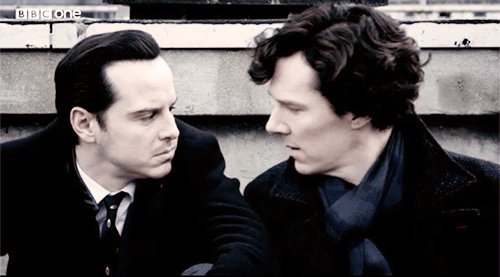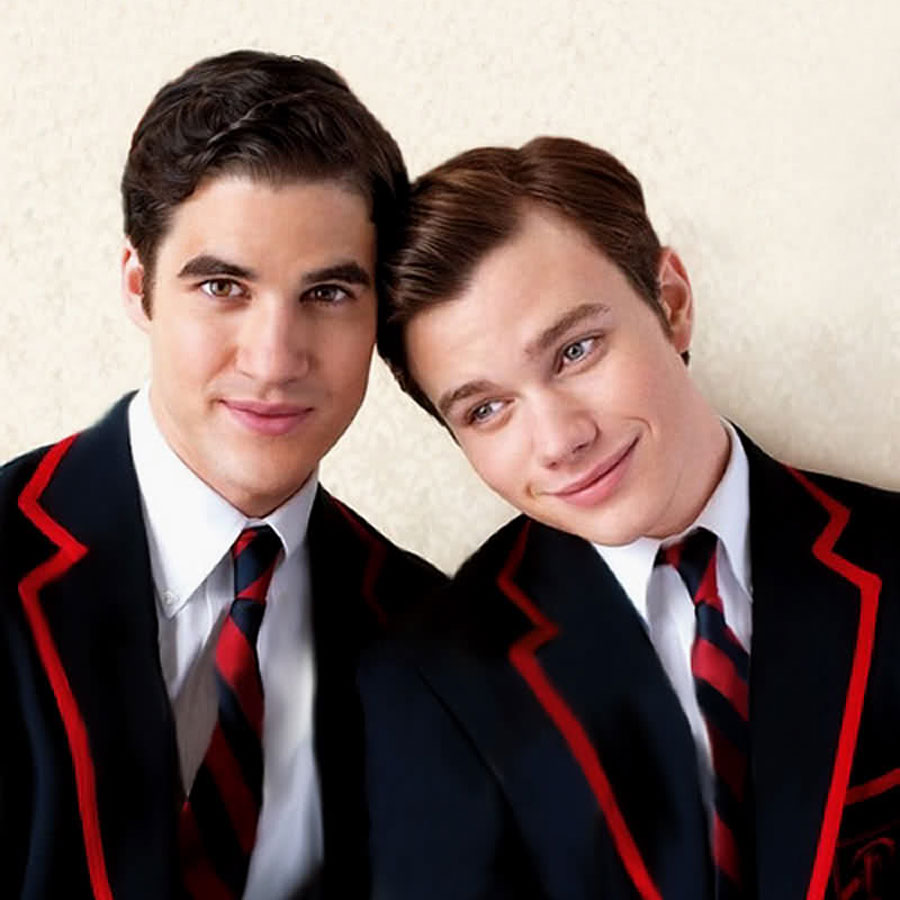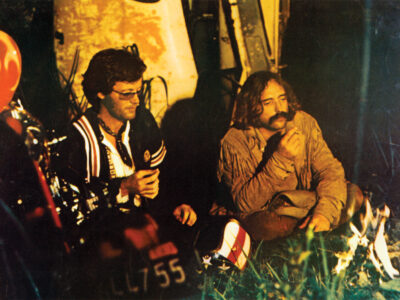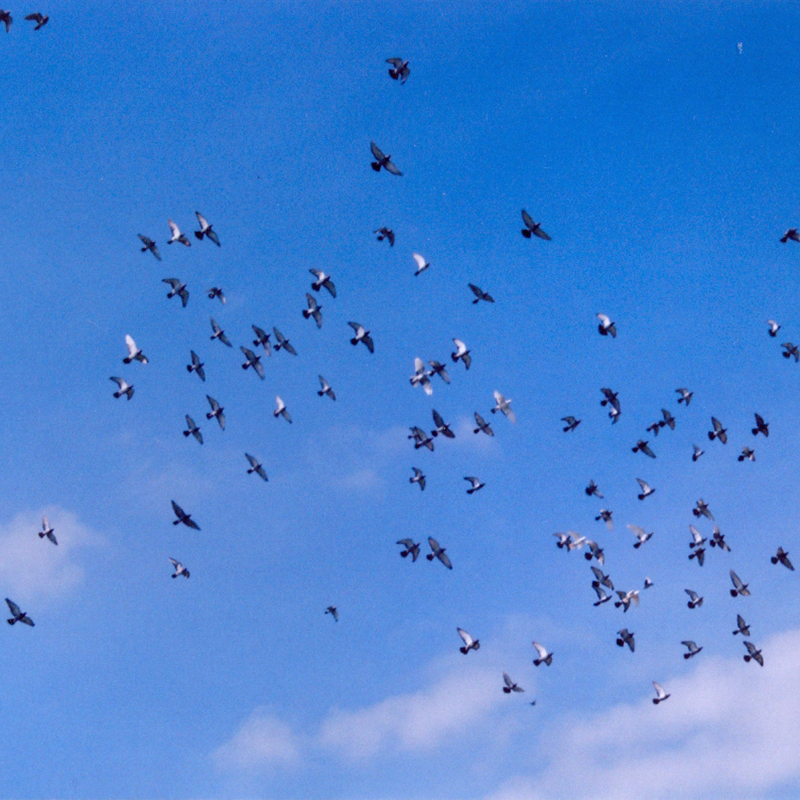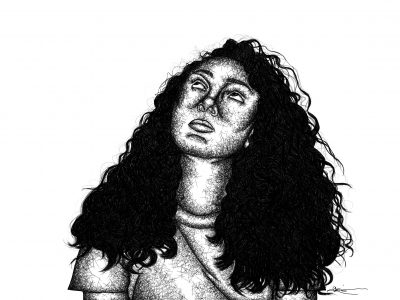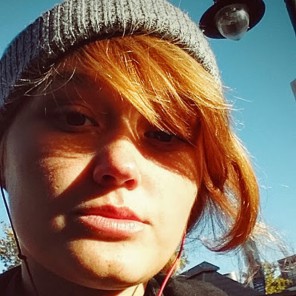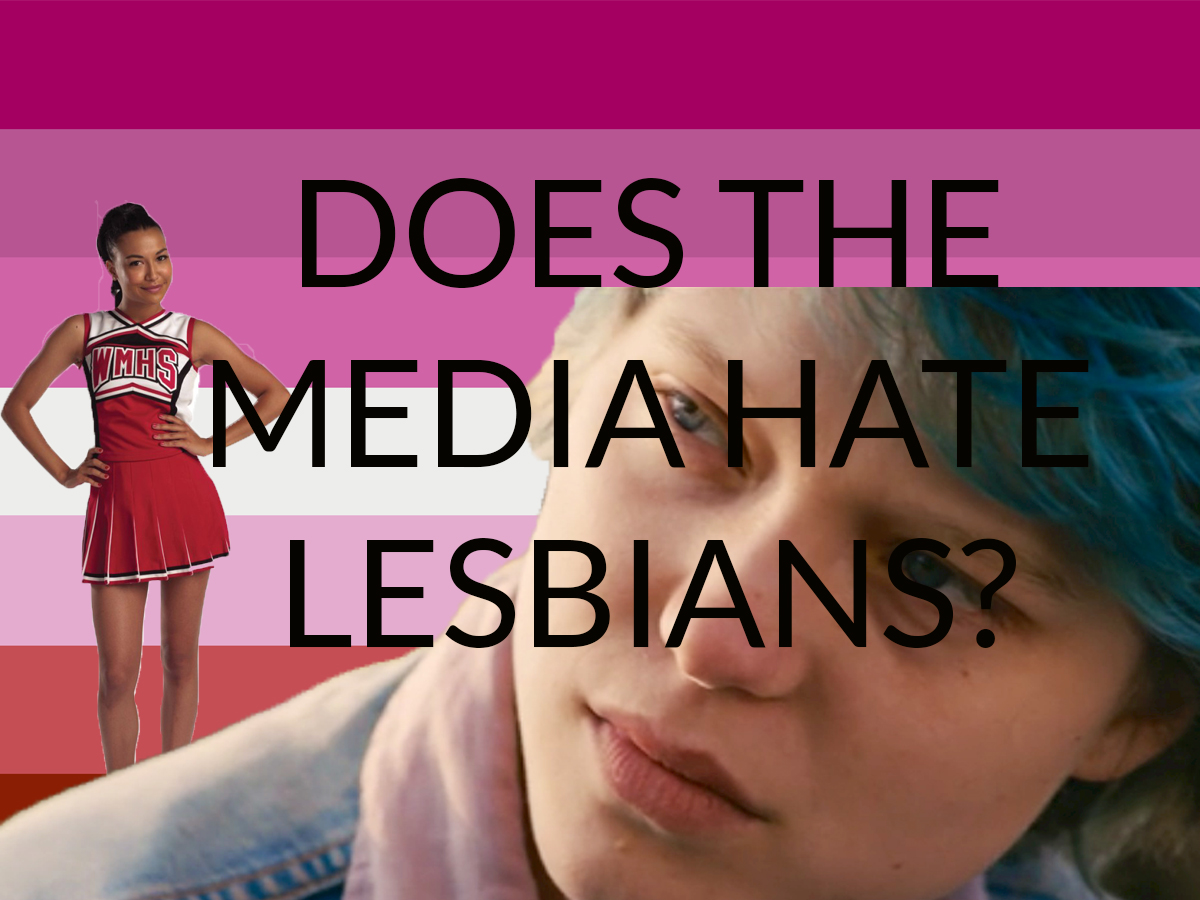My Favourite Fictional Lesbian And Gay Heroes
Kaja talks about how their fictional gay and lesbian heroes changed their life, and just how important the heroes from your favourite books or TV shows are.
It’s LGBT+ history month, a time to celebrate LGBT+ culture, and I realised with an element of surprise that most my LGBT+ heroes are fully or semi-fictional. But then I suppose it’s true that people don’t have to be real to make real changes in your life. Just the idea of a person or a vision of optimism can be enough to change the world. A hero, especially, is most often an idea more than anything. There are some real life heroes, like Gandhi or Martin Luther King or Obama, but a lot of people, when asked to think of a hero, would think of a fictional character like super-man. Fictional heroes can be whatever we need them to be. They are your role-models, they inspire you, but most importantly a hero saves you. All these fictional LGBT+ heroes have saved me in one way or another, so I felt like now was a good time to give them a mention.
LGBT+ history month is a month in which we celebrate those LGBT+ heroes that influenced us; whether this be historical figures, or someone closer to home. It’s a time to be proud of our culture and what brings us together as a community. This is why it’s important. The following is a list of my LGBT+ heroes alongside a description of what they meant to me. It’s mostly written in chronological order of who I found out about first, instead of an order of importance. They were all crucially important to me, and without some of them I wouldn’t be the person I am today.
Nancy “Nan” from ‘Tipping the Velvet’
Me and my mum love charity shopping, and I remember one cold winter evening a few years ago, I was scanning the book section in a charity shop on North Street when my mum showed me this book, ‘Tipping The Velvet’. She told me it was a really good book and she’d buy it for me if I wanted. After a brief scan of the blurb I realised it was a lesbian book, but it was also basically a classic my mum had said, so I thought I could get away with reading it ‘out of interest’. You see at this point I was about 15 and quite deep in the closet. So we left the shop and decided to go to The Banco Lounge, a rare treat, and as I waited for mum to get us some hot drinks, I opened my new novel. It was a chunky book, one of the biggest I’d attempted to read, and the cover with a couple of slippers on it didn’t say much about the story inside. The first page seemed to be about oysters. I read it, feeling a mixture of disappointment at how slow starting it seemed to be, yet a thrill of excitement at reading my first lesbian book. Then my mum came back with my hot chocolate and I stopped reading.
Later that night though, I picked the book up again, and this time I didn’t put it down so easily. Although it was the most slow-starting book I had read, it was worth it, as soon enough the main character, Nancy, or ‘Nan’, goes on a trip to the music hall and falls in love with a ‘masher’; a woman dressed as a man. Her story resonated deeply within me and I read it almost constantly for the next week or so, being teased by my friends at school for reading what they said was a lesbian erotica. It did have some racy bits, but most of the book was just an amazing portrayal of Nancy’s journey from being a plain, unfulfilled girl working in her father’s oyster shop and being engaged to a guy she wasn’t interested in, to singing onstage, dressed as a man, arm in arm with her female lover, Kitty. I loved it.
But why is Nancy herself my hero? It’s been a while since I read the book so I couldn’t tell you the details of her personality, and if my memory serves me correctly she also does some pretty grey-area things. But, she was my role model. She had a very hard time discovering her sexuality and went through depression and really dramatic situations to come out in the end on top (I won’t spoil it for you exactly), and this was something I needed to see. She was strong, not perfect, but a survivor, and if she could go through the things she had and have a happy ending, I felt maybe I could too.
Paul from ‘Boy Meets Boy’
After reading ‘Tipping The Velvet’, I craved more LGBT+ literature, and one day when I was in Waterstones, I noticed on one of the tables a book that was bright yellow. In bold letters it said ‘Boy Meets Boy’, which I had to read twice to make sure my brain hadn’t tricked me. A teen gay fiction, I loved the idea of it. But I was with my friend at the time and, since I was still closeted, I was too afraid to buy it, or even look at it too long. So soon we left the shop, empty handed. A few days later though, on my own, I returned. I bought the book, not looking the shop assistant in the eye, and took it home to read. I was blown away.
When there’s a quote or an occurrence in a book that I love and want to remember, I’ll fold a tiny corner of the page over to later return to. There are dozens of pages with these tiny fold marks in ‘Boy meets Boy’. It’s a really interesting book as it’s hugely romanticised and artistic and doesn’t feel entirely real when you read it, yet the messages in it are more real than anything.
Paul is the protagonist, and he has known since he was very little that he was gay, but his friends who are questioning their sexuality, or can’t come out, are struggling, and he himself has some difficulties with a new boyfriend. All in all, this means he has to use a lot of strength and wisdom to work things out. A quote from the book about bravery changed my life hugely, as the day after reading it I came out to my parents.
‘I find my greatest strength in wanting to be strong. I find my greatest bravery in deciding to be brave… If there’s no feeling of fear, then there’s no need for courage.’
Right now, reading this quote again, it doesn’t mean as much to me as the first time I read it. Because when I was fifteen, lying in bed and clutching this book which was my secret, I needed to hear this, and I haven’t ever needed it as much as I did then. Paul gave me the strength to do something that had been crushing me inside for years, and that’s why he’s my hero.
Jonathan and Mark from ‘Pride’
‘Pride’ is an amazing film I would recommend to anyone, and it’s also the first LGBT+ film I watched in the cinema. I watched it six times, in the time frame of a couple of weeks. I was obsessed. And although there is an array of spectacular characters in this film who I loved, there were two I went on to actually try and emulate in life. Jonathan and Mark.
Jonathan is the campest, most confident character in the film, famous for getting on the dance floor and strutting his stuff in a conservative community hall, which was a scene I watched over and over on YouTube and makes you feel compelled to laugh or dance along. He is unashamed of who he is, throughout the film, and also encouraged a mother and house-wife to follow her dreams because, ‘good people are dying all the time, so don’t you dare waist it {your life}.’ This stuck with me. He also had a long scarf which he wore over one shoulder which is something I started doing immediately.
Mark is the founder of the group of LGSM (Lesbian and Gays Support the Miners), and he is a very inspirational character. He is compelled to help change the world, repeatedly making amazing public speeches and is proof that anyone can creative positive change. He proudly wore gay-themed badges on his leather jacket, and I, who had always loved wearing badges on my clothes, nervously pinned on a ‘I Can’t Even Think Straight’ badge, after seeing this film the first time. The badge is still there today. Although I felt nervous wearing it at first, I would always think on Mark’s quote that ‘Life is short’ so you have to be proud of who you are. This has been said a lot of times by many different people, but when his character said it, for some reason, something really got through to me.
Both these men are actually real people, since the film is based on an actual event. However, their characters were partly amalgamations of a few different real people, since there was a lot less members of LGSM in the film than real life. I looked Jonathan up, who is still alive today, and he is truly a hero; a very confidant cheery man as he’s shown to be in the film, and he is amazingly a survivor of AIDS who has gone on to live with it for many years. Mark, sadly, died of AIDS when he was still in his 20’s, which I think is why his quote means so much. His life was very short, but the years he had on this earth were spent doing amazing things; changing the world, fighting for what he believed in, and being proud of who he was. Both of them are my heroes for setting examples of how to be proud and confident in who you are, and to also make the most of your life.
Moriarty from BBC’s ‘Sherlock’
This one’s a funny one, as Moriarty from the BBC’s Sherlock is definitely not a hero, and only speculatively gay. Andrew Scott who plays him is a lovely person and definitely gay, but I’m not so sure about Moriarty. So why have I put him on here?
There is a huge fandom that accepts Moriarty as gay. This is reflected in the first episode of series three Sherlock where a whole scene is dedicated to portraying the mad fandom’s speculations of Sherlock’s fake death including Moriarty and him kissing on the roof.
I was once very much involved in this fandom. Even though Moriarty is a pretty evil, deranged character, he is also brilliantly portrayed, and like a lot of others in the fandom I really enjoyed writing about or exploring his character, who is a bit of an evil-genius, and a good dancer. Why he means so much to me, though, is because he inspired a fanfiction I wrote about him, which I published on Wattpad. This was the first time I had ever written about a gay character, and the positive feedback and acceptance I received from other fans helped me feel much more confident in portraying LGBT+ characters in my writing which I’ve continued to this day. I also got to explore, through him, what it means to be gay and the feelings you have and go through realising you’re not straight, which helped in my own self-acceptance. This is why Moriarty is my anti-hero.
Kurt from ‘Glee’
Finally, we get to Kurt. Kurt was the first teenage gay person I saw on TV, in Glee, and he, as well as the rest of the show, really made me feel a lot better about myself. By the time I saw Glee, I was pretty established in my identity, but was struggling with feeling comfortable about it when socialising with new groups of people, and in searching for relationships. Kurt was a wholesome beacon of hope, who struggled hugely with bullying and acceptance in his own sexuality, but stayed true to who he was and eventually found his boyfriend, Blaine, with whom he had a really lovely, inspiring relationship. I remember the first duet the two sang together I was squealing with joy, and I still have that song on my phone. Once I remember walking down the street and hearing the duet come on in my earphones, and thinking how amazing it is that in our day and age that two men could sing together in a love song, and how much closer the world is to accepting our community into its heart.
There are so many other characters I’d like to mention, such as the lesbian couple in ‘Friends’ who normalised lesbian relationships to me, or Willow Rosenberg, who was a really positive bisexual character in ‘Buffy The Vampire Slayer’, or Lofty and Tonker, from one of my favourite books, ‘Monstrous Regiment’, Xena from ‘Xena Warrior Princess,’ Frank N Furter from ‘The Rocky Horror Picture Show’ or a number of many characters from many other things… But that would really turn this into an epic essay, so I should probably stop fangirling now (although I do recommend watching all the TV Shows/ films and reading the books I’ve mentioned above).
I will say one more thing. I wrote an article before about how badly lesbians are represented in the media, and it’s true that we need more LGBT+ representation, and this is why. To have a character in something you love that you can relate to can really mean the world. To look at their struggles or relationships or confidence as a mirror helps us feel comfortable with ourselves. For a scared teenager having a difficult time coming out, these characters really do mean the world, and they can be the difference between living a life in hiding and sadness, to being out there, proud, and happy with who you are. That is why they are important. And that is why they are heroes.
What are your thoughts on fictional heroes and what they mean to you? Tell us in the comments below.
If you want to get involved this LGBT+ history month, why not go to this event on Language and Representation in LGBT+ Culture.

